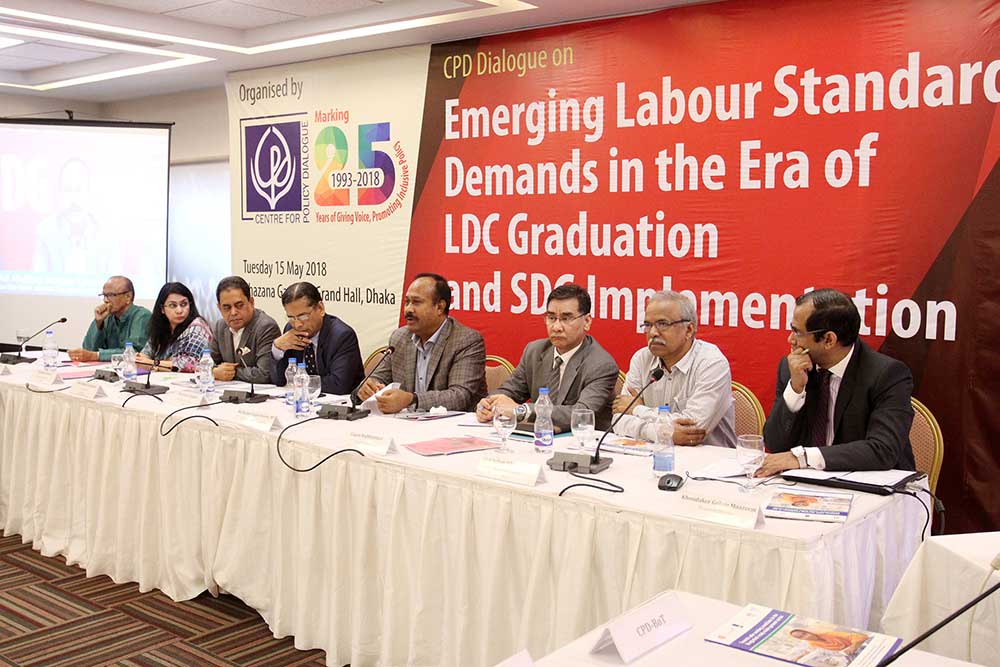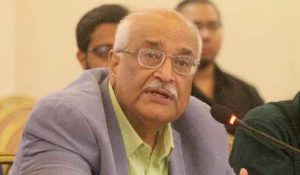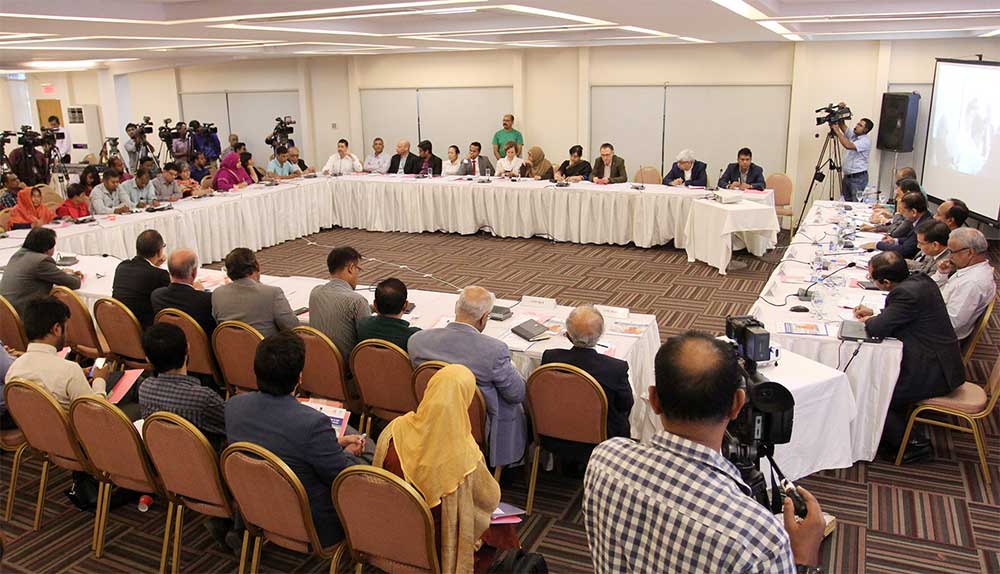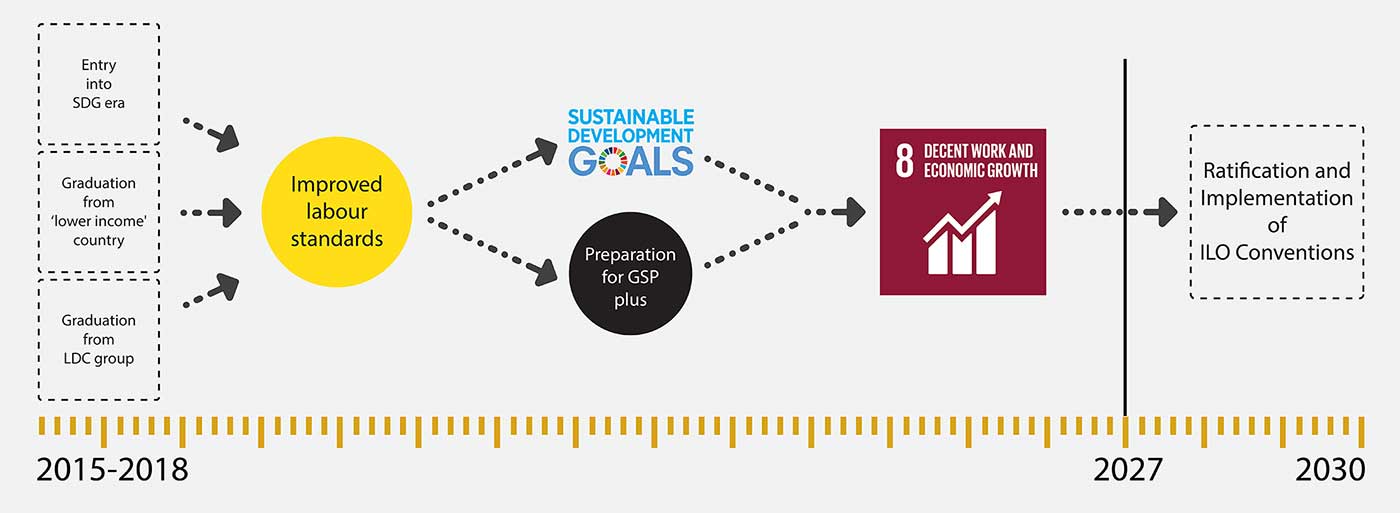
Reforming labour law and its effective enforcement in compliance with the ILO conventions is pivotal for improving our labour standards. Bangladesh has ratified 35 UN conventions, including seven of the eight core conventions with all ILO related conventions currently ‘in force’. The country needs to work on multiple issues under each convention with a view to improving its performance for attaining the sustainable development goals by 2030 as well as getting the GSP Plus status in the European market after LDC Graduation.
The observations were made at a CPD dialogue titled, “Emerging Labour Standard Demands in the Era of LDC Graduation and SDG Implementation” held at Khazana Gardenia Grand Hall, Dhaka on 15 May 2018. Centre for Policy Dialogue’s Distinguished Fellow Mustafizur Rahman chaired the dialogue while CPD Executive Director Fahmida Khatun delivered the introductory speech. CPD Research Director, Dr Khondaker Golam Moazzem, presented the keynote paper at the event. Following the presentation, a discussion was held where the special guests, stakeholders and representatives from various labour-intensive industries offered their feedback.
 CPD distinguished fellow Debapriya Bhattacharya said although Bangladesh has shown growth in employment generation, the real income has fallen, which indicates that the newly created jobs are not decent jobs and are mostly part of the informal sector. He mentioned that the global trade circumstances and the nature of the growth in Bangladesh are not very conducive at this moment for enforcement of labour standards. The rise of informal sector in Bangladesh in proximity with the increasing use of technology is leading it to a highly polarized dual economy, a case not very conventional for a country moving towards middle-income status, he added.
CPD distinguished fellow Debapriya Bhattacharya said although Bangladesh has shown growth in employment generation, the real income has fallen, which indicates that the newly created jobs are not decent jobs and are mostly part of the informal sector. He mentioned that the global trade circumstances and the nature of the growth in Bangladesh are not very conducive at this moment for enforcement of labour standards. The rise of informal sector in Bangladesh in proximity with the increasing use of technology is leading it to a highly polarized dual economy, a case not very conventional for a country moving towards middle-income status, he added.
Syed Sultan Uddin Ahmed, Executive director of Bangladesh Institute of Labour Studies (BILS) emphasized inclusive labour standards saying labour laws should be implemented in all sectors rather than prioritizing any specific sector under international pressure and compliance principles.
Bangladesh Garment Manufacturers and Exporters Association (BGMEA) president Md Siddiqur Rahman highlighted the improvement of labour standards and safety in the RMG sector since the Rana Plaza disaster and said that Bangladeshi entrepreneurs are becoming capable of monitoring their own factory and business.
Timeline of increasing labour law demands in the run-up to SDG implementation and LDC graduation
Gagan Rajbhandary, officer in charge of the ILO praised Bangladesh for its proactive and inclusive approach for meeting the SDGs and stressed on the significance of ratification of ILO convention-138, the provision related to minimum age for admission to work.

State Minister for Labour and Employment Md Mujibul Haq Chunnu noted the various measures taken by the government for providing better labour conditions. He was of the opinion that Bangladesh has made rapid progress in improving labour safety and standard compared to many other countries. He discussed the possibility of holding a talk with concerned stakeholders regarding the ratification of convention no. 138. Bangladesh govt. is working hard to comply with the labour conventions of ILO and it will not be difficult for Bangladesh to obtain the GSP-plus facilities, he maintained.
The discussion was also addressed by Abu Syed Belal, trade adviser to the EU delegation in Bangladesh, Shamsunnahar Bhuiyan, member of minimum wage board, and Bangladesh Trade Union Kendra General Secretary Dr Wajedul Islam Khan.





